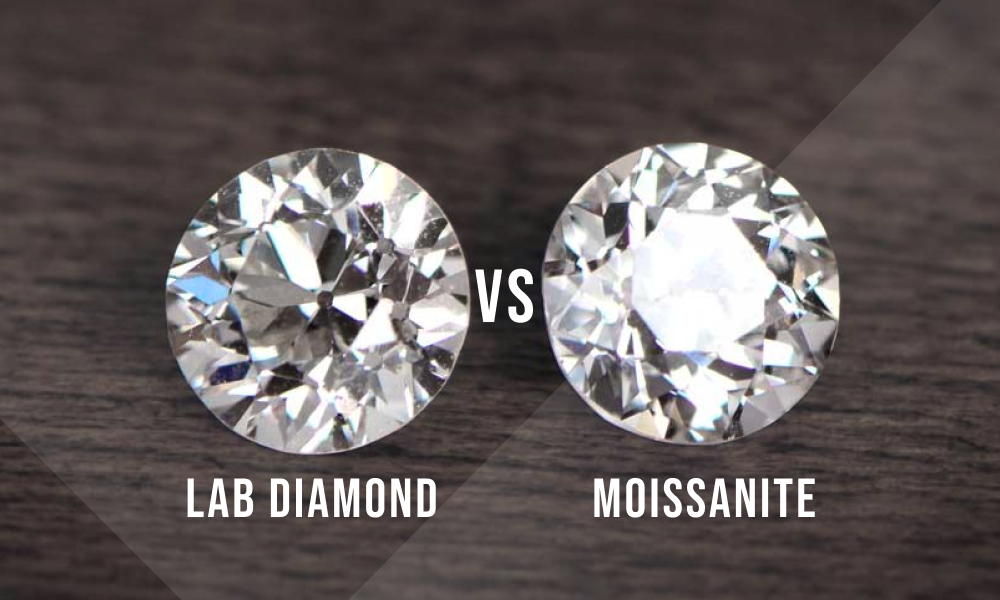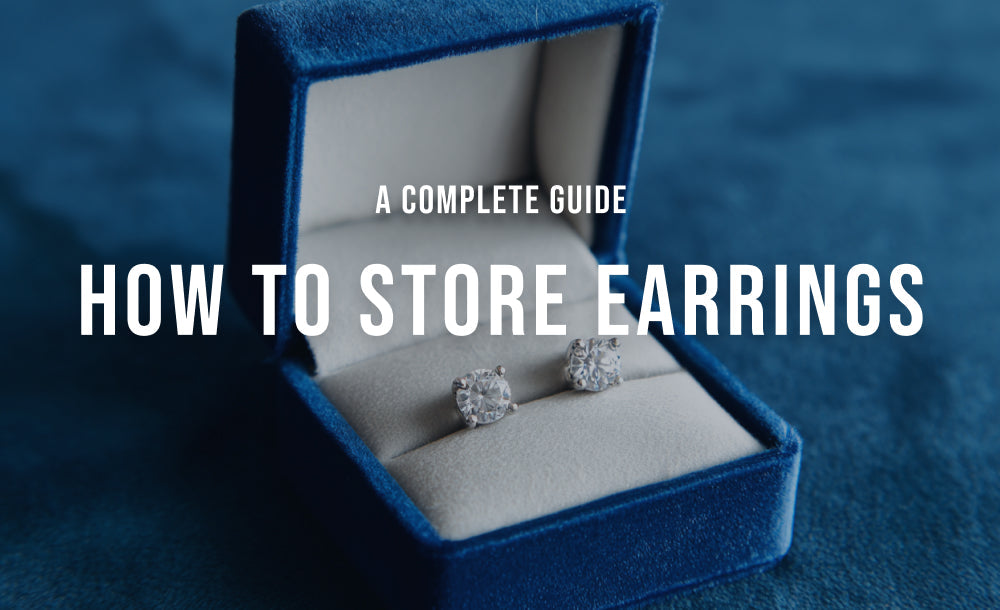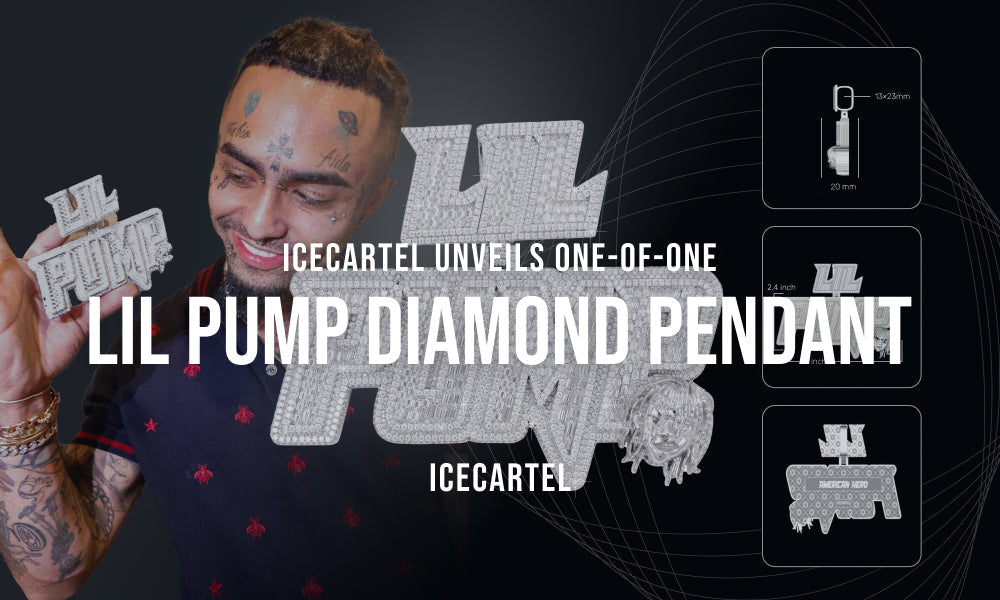A diamond necklace is a luxurious accessory that adds a sparkly yet elegant touch to your outfit. However, certain types of diamond necklaces, such as tennis chains, tend to flip over.
While it can be annoying when your precious necklace keeps turning over, a flipped diamond chain can also impact the appearance and security of the jewelry.
Wondering how to keep a diamond necklace from flipping over?
Well, there are a few easy ways to fix your necklace at home. It could be adjusting the length or adding some counterweights. Another option is to get your diamond necklace adjusted by a professional jeweler. In both cases, it’s important to understand why your necklace cannot stay in place.
In this comprehensive guide, we explain why diamond necklaces tend to flip over and explore several techniques to solve the problem. We also share some practical tips to help you develop daily habits that will minimize flipping in the first place.
Understanding the Problem: Why Do Necklaces Flip Over
Before you even try to fix your diamond chain, it’s essential to detect what causes the necklace to flip. By understanding the problem, you can easily find the most optimal solution to keep your necklace in place.
Imbalance in Design
One of the most common reasons why a necklace keeps flipping over is some sort of imbalance in design. What this means is that the weight of different components isn’t distributed evenly across the necklace.
If the necklace has an asymmetrical design, with one side being heavier than the other, it will keep twisting and flipping. The same applies to necklaces in which the center of gravity isn’t balanced properly.
Chain Issues
In some cases, the chain design and shape cause the necklace to flip over.
If the chain is too flexible, the necklace may not lay flat on your neck, especially as you move around.
Besides, the diamond necklace may also flip over if the chain is too lightweight.
The same applies to diamond necklaces with loose, deformed, or broken links.
Clasp Issues
If you cannot stop your diamond necklace from flipping over, make sure to check the clasp.
While the clasp may not necessarily be broken or damaged, it may simply not be the right fit for a particular necklace.
In fact, clasps should be selected according to the size and weight of the necklace itself.
A properly selected clasp should be able to support the pattern of a diamond necklace, minimizing its tendency to flip or turn.
Incorrect Length
Oftentimes, we buy necklaces without thinking much about their length.
When it comes to diamond necklaces, especially tennis chains, even 1 or 2 inches can make a huge difference in how the chain lays on your neck.
So, if you have trouble stopping your necklace from flipping over, the chances are that your chain is too long for your neck.
Physical Activity
A diamond necklace may easily flip over during physical activities. However, this is completely normal, and there’s nothing to fix here.
No matter how well the weight is distributed or how sturdy the clasp is, the necklace might still keep turning around as you run or exercise.
Clothing Interference
Last but not least, necklace flipping is often caused by clothing interference. Certain types of clothing aren’t quite suitable for diamond necklaces that have a tendency to flip over.
These include loose, textured, or knit fabrics that can easily catch on a diamond necklace. High-necked clothing or those with collars may also push against the necklace, causing it to flip over.
Choosing the Right Necklace to Avoid Flipping

If you’re wondering how to keep a diamond necklace from flipping over, choosing the right necklace is the most effective technique.
To do so, you just need to consider the necklace length, style, and weight, as well as the clasp type and position.
You'll Also Enjoy: How to Untangle a necklace
Necklace Length
Selecting the right necklace length allows you to enjoy your precious jewelry without having to fix it over and over.
As our bodies are unique, there’s no ideal necklace length that works for everyone. The length should be determined based on your dimensions.
Ideally, you should get a necklace that sits close to your neck rather than one that drapes down on your chest.
The length of a diamond necklace that is less likely to change its position ranges from about 14 to 20 inches, depending on its overall design.
Necklace Type
Some necklace designs are more susceptible to flipping, while others remain in place.
For example, diamond tennis chains are more likely to flip due to their lightweight design and overall shape.
Cuban link chains , on the other hand, rarely flip over, all thanks to their bulky design and proper weight distribution.
So, if you want to purchase a diamond necklace that won’t flip over, go for bulky chain designs or minimalistic options with tiny pendants.
Check out different types of diamond necklaces from Icecartel!
Diamond Carat Weight
Diamond carat weight has a significant impact on the overall weight of a given necklace. In general, lightweight necklaces are more prone to flipping than heavier options.
That being said, incorporating higher-carat diamonds into the necklace design can significantly minimize flipping.
Clasp Type
When shopping for a diamond necklace, make sure to pay attention to the clasp type, shape, size, and weight.
The size of the clasp should correspond to the size of the necklace to minimize movement. If a clasp fails to hold the necklace in place, its likelihood of flipping may significantly increase.
Go for lobster clasps or spring ring clasps, as they provide a strong and reliable closure, ensuring the necklace stays securely in place.
Clasp Position
The placement of the clasp can affect the stability of a diamond necklace. Ideally, the clasp should stay in the back to balance the weight of the necklace and keep it in place.
Techniques to Keep a Diamond Necklace in Place

Investing in a precious diamond necklace and seeing the gemstones concealed can be frustrating. Necklaces tend to flip over, but that’s not the end of the world.
There are various techniques to make a necklace lay flat, and you don’t even need fancy tools or special equipment.
Here’s how to keep a diamond necklace from flipping over.
Proper Positioning
One of the easiest ways to keep jewelry in place is to properly position the necklace when putting it on.
Before fastening the clasp, make sure the chain is completely untangled and lays flat on your neck. After securing the clasp, keep it in the back, right in the middle of your neck.
In this way, the weight of the clasp will balance the weight of the necklace, minimizing movement.
Using Necklace Extenders
Another way to keep a diamond necklace in place is to adjust its length. Although shorter necklaces are less likely to flip over, you may still need to adjust the length to achieve a better fit.
To do so, you’ll need a necklace extender that you can easily attach to the chain. Try to experiment with a few lengths to find the right one for you.
Adding Counterweights
As necklace flipping is often caused by an imbalance in design, adding counterweights is a perfect solution. A counterweight is a type of necklace stabilizer that balances the necklace weight to keep the clasp in the back and make the chain lay flat.
For DIY counterweights, consider adding a small pendant to distribute the weight evenly across the entire length of the chain.
If you have any trouble, consider seeking professional help to add counterweights in a way that blends with the design. Professional jewelers can solder tiny gold pieces from the inside, preserving the original look of the necklace while reducing its tendency to flip.
Maintenance and Care
Believe it or not, taking good care of your diamond necklace and keeping it maintained can make a huge difference. Diamond chains may deteriorate over time, making them more prone to twisting and flipping.
Here are some maintenance and care tips to keep your diamond necklace in perfect condition.
Regular Inspections
Checking for wear and tear ensures the necklace’s structural integrity. By inspecting your necklace for any signs of damage or imbalance, you can ensure timely repairs or adjustments to maintain balance.
Besides, regular inspection will help you identify any loose or damaged components that need to be fixed to maintain the functionality, elegance, and value of a diamond necklace.
Proper Cleaning
Dirt, oil, and residue buildup can alter the structure and balance of a diamond necklace. Therefore, regular cleaning is essential to minimizing the likelihood of the necklace flipping over.
Besides, proper cleaning will give diamonds dazzling sparkliness, which may distract from any minor movements in the necklace.
Using some dish soap and warm water to clean your diamond necklace at least 1-2 times a week is a good cleaning routine to have.
Professional Help
For more advanced maintenance work, make sure to seek professional help. Experienced jewelers use high-quality tools and cleaning solutions to keep precious diamond necklaces in perfect condition.
However, finding a trustworthy jeweler who will handle your diamond necklace with care is crucial for protecting your gorgeous jewelry.
Make sure to opt for a well-established and highly reputable jeweler. Although the service might be more expensive, it’s definitely worth the investment.
Practical Tips on Keeping a Diamond Necklace from Flipping Over
Want to know how to keep a diamond necklace from flipping over? Here are some practical tips to get started.
Handle the Necklace with Care
Developing daily habits and handling the diamond necklace with care is crucial for protecting its structural integrity, which in turn minimizes the risks of flipping.
Besides, avoid wearing a diamond chain when being physically active. A necklace that keeps flipping over is not only less attractive but may also get damaged due to excessive movement.
Choose the Right Clothes
Choosing the clothing types that are less likely to interfere with the necklace is another important tip to keep in mind.
With diamond necklaces that tend to flip over, fitted clothing made from fitted fabric is ideal.
Basically, any type of clothing that won’t catch on or push against the diamond necklace will work.
Temporary Solutions
If you’re in a hurry and need a temporary fix to stabilize your diamond necklace, permanent solutions will have to wait.
Here are some quick fixes you can make to keep your necklace in place.
Double-sided fashion tape: To keep a diamond necklace in place, you can use a tiny piece of double-sided fashion tape. Stick the tape to the back of the necklace clasp and then onto the skin to create a temporary adhesion that will minimize movement and keep the necklace securely in place.
Lash glue: Use lash glue as an alternative and delicately apply it to the back of the necklace clasp and onto the skin to prevent unwanted movement. This is also a temporary solution to enjoy your time without worrying about the flipped necklace.
In both cases, make sure your skin isn’t allergic to the double-sided tape or lash glue. Do a patch test on your arm and observe the area for any signs of irritation, such as itching, redness, or swelling.
Conclusion
Diamond necklaces are timeless accessories that make your attire look more elegant and sophisticated. However, no matter how sparkly a necklace is, its tendency to flip over can be overwhelming.
So, how to keep a diamond necklace from flipping over?
Knowing how to keep a necklace in place is all about understanding what makes it flip. It could be an imbalance in design, improper clasp size, physical activity, or clothing interference.
To reduce the movement and ensure that a diamond chain lays flat on your neck, go for a 14- to 20-inch necklace with a secure lobster clasp. Besides, opt for a higher-carat diamond necklace for enhanced weight distribution.
If you want to fix a diamond necklace that keeps flipping over, consider using necklace extenders and DIY or professional counterweights. For temporary solutions and quick fixes, use double-sided tape or lash glue to secure the necklace in place.
Keep in mind that proper cleaning and regular maintenance can make a huge difference. Don’t forget to inspect your diamond chain for any wear and tear to ensure timely repairs and adjustments to maintain structural integrity, balance, and stability.
It’s recommended to seek professional help for permanent solutions and adjustments that will blend into the necklace design without affecting its aesthetic value.



































































